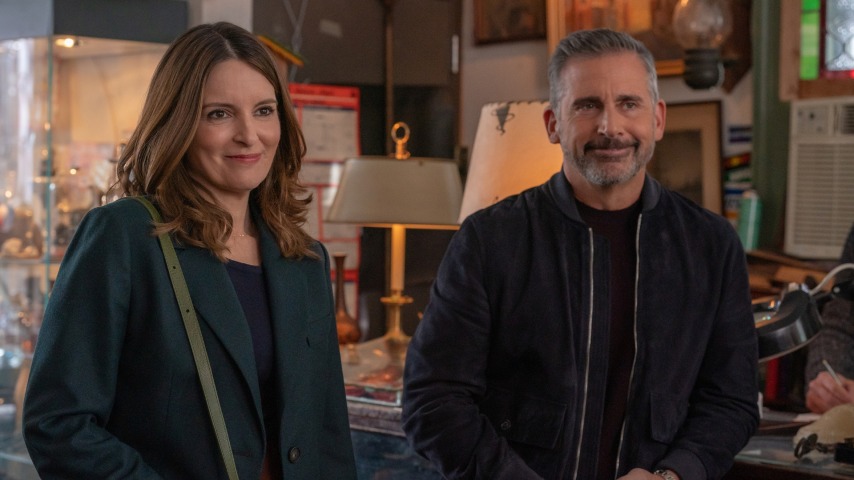Tina Fey turns The Four Seasons into comfort TV
Colman Domingo steals the show in this contemporary spin on the 1981 film.
Photo: Jon Pack/Netflix
It’s easy to get lost in the world of The Four Seasons. The series hops between a sunny lakeside, a cozy inn, and a snowy mountain, with the beautiful locations doubling as a backdrop for some serious introspection from its protagonists. The show’s ruminative spirit is lifted directly from the 1981 film it’s based on. Co-creators Tina Fey, Lang Fisher, and Tracey Wigfield pay dutiful homage to Alan Alda’s The Four Seasons while giving the plot just enough of a modern makeover. And despite a few foibles, this more heartbreaking and less wry take on middle-age friendships and crises is extremely enjoyable.
Of course, much like the original, an instant draw of the Netflix series is its top-notch ensemble. (The movie featured the likes of Alda, Carol Burnett, Rita Moreno, and Sandy Dennis.) The Four Seasons marks Fey’s first lead role on the small screen since 30 Rock‘s end in 2013. She’s joined by fellow comedic pros like Steve Carell and Will Forte (all three flaunt dramatic chops here), Reno 911!‘s Kerri Kenney-Silver, and the always-great Colman Domingo, who walks away as the series MVP. The cast’s warm chemistry makes their characters’ bonds feel lived-in, an essential requirement for a TV show about the importance of having a trusted crew to help one through life’s ups and downs.
The Four Seasons delves into the joys and complications of maintaining kinship through the lens of three couples. Jack (Forte) and Kate (Fey) are the kind of committed partners with inside jokes and open communication. Their yin-and-yang personalities (she’s a type-A planner; he’s happy to go with the flow) make them fit well together. The SNL alums take a bit to establish an onscreen dynamic, but once they do, Fey and Forte become The Four Seasons’ sweet, reliable anchors. The next couple is Danny (Domingo) and Claude (Marco Calvani), who are in an open marriage, although their respective strong-willed attitudes often lead to fights. And finally, there’s Nick (Carell) and Anne (Kenney-Silver), who are celebrating their 25th wedding anniversary.
All six longtime friends meet up for an annual spring vacation to mark the occasion, but their getaway goes awry when Nick announces that he intends to divorce his wife. His definitely-not-spur-of-the-moment decision has a domino effect that moves the group into uncharted territory. Each of them begins to question how fulfilled they truly are—whether in romance, their careers, or as parents and spouses—and if significant life changes are even possible at this juncture. Nick’s pursuit of a fresh start with a younger girlfriend and a wilder spirit intriguingly propels those around him to look inward as well.
 Keep scrolling for more great stories.
Keep scrolling for more great stories.
